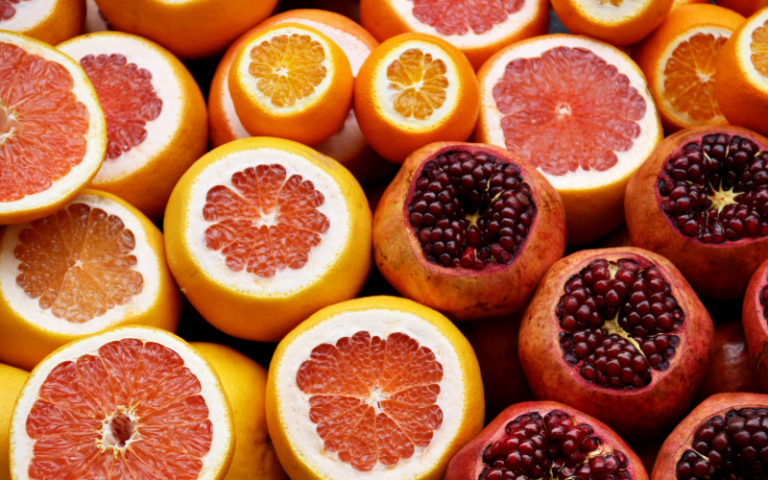Staying healthy as a vegetarian/vegan
26 February 2019
A healthy diet without meat (and dairy) can sometimes throw up challenges in regards to sustaining a healthy and balanced diet. UCL alumna Nichola shares her tips for ensuring you stay healthy on a plant-based diet.

Whether you’re doing it for the animals, the environment, your health or the fact that you simply can’t cook (let alone afford meat on your student budget) vegetarian and vegan diets are becoming more popular than ever among students. Here are some ways that I found helped me to stay healthy on a plant-based diet on a student budget:
1. Do your research
Vitamin deficiencies are common in all diets, not just plant-based diets and can really affect your energy levels and performance. It’s important to do your homework so that you can keep up with your busy self.
Researching different food groups and options can help to ensure that you get the right vitamins and nutrients is vital to thriving on a plant-based diet.
Tip: The main ones to keep an eye on are iron, B12, calcium, and Omega 3. And remember to include Vitamin C rich foods to help your body absorb the iron in your meals. For more info check out The Vegan Society.
2. Speak to your GP
As you are actively avoiding certain foods, it is important to ensure that your GP is aware of your diet and that you take any tests needed to check that your vitamin and nutrient levels are as they should be. Deficiencies may hinder your health and your studies! Your GP can then advise you on any supplements that you may need to be taking.
3. Plan your meals & invest in a little advance prep
Beans on toast is possibly the easiest student vegan meal you can make – but you don’t want to be eating it every day! Meal planning can help you know what you’re cooking everyday, prepare lunches the night before and make a big difference between you merely surviving and you thriving on a plant-based diet.
Tip: Make a big batch of grains such as quinoa or buckwheat which can easily form the basis of many different meals throughout the week from salads to soups and Mexican bowls.
4. Snacks
Always have snacks to get you through the day– this one is particularly important if you are a vegan as you won’t be able to grab something as easily. Carry nuts/seeds/fruit with you to help balance your blood sugar levels throughout the day and avoid those afternoon energy drops. You could try protein bars, dried fruit, nuts, almond butter and apple slices or carrot sticks.
5. Your freezer is your friend
Plan to make big meals and freeze half of it in single portion Tupperware. Trust me – when it comes to reading week and revision period, you will thank your earlier less stressed self!
Tip: If you are short on freezer space try using zip lock freezer bags – lay flat and stack once frozen. Be sure to write the contents on the bag!
6. Smoothies smoothies smoothies
Smoothies are a great way to pack in a lot of nutrients with both protein and fruit/veggies and will get you through those mornings when you have back to back lectures. There are some great student budget-friendly options on the market (the Kenwood Smoothietogo is only £22.99).
(Tip: To save precious morning time prepare your smoothies and store in the freezer in separate zip ock bags. Add your preferred milk in the morning and any nut butter/protein powder and voila your iced smoothie is ready to go)
7. Experiment!
When you have a busy student lifestyle its all to easy to grab the pre-made veggie options from the frozen aisle. While these are great options every now and again, a big part of staying healthy as a veggie or vegan is about thinking outside of the box and trying to find healthy homemade versions of your old favourites (Think homemade vegan lasagna, cauliflower based pizza, bean tacos and sweet potato brownies!)
I had never heard of quinoa, kale, chia seeds, okra, chard, tempeh, miso, seitan etc. and now these are staples of my diet!
Generally plant-based diets are MUCH cheaper as veggies and vegans survive on beans, rice, pasta, fruits and vegetables – the cheapest ingredients on earth!
8. Get exploring!
Take some time to get to know which shops and cafes in your area you can find healthy veggie/vegan food. Luckily Londoners are spoiled for choice when it comes to veggie options and vegan cafes are popping up everywhere - we have two Planet Organics to choose from within a 10 minute walking distance and we even have a Veggie Pret in Soho! Bloomsbury and Fitzrovia are full of great places to eat there are lots of online resources such as HappyCow (and the app!) which have already done a lot of the work for you!
Nichola Carroll, UCL alumna, BA French and Spanish
 Close
Close

